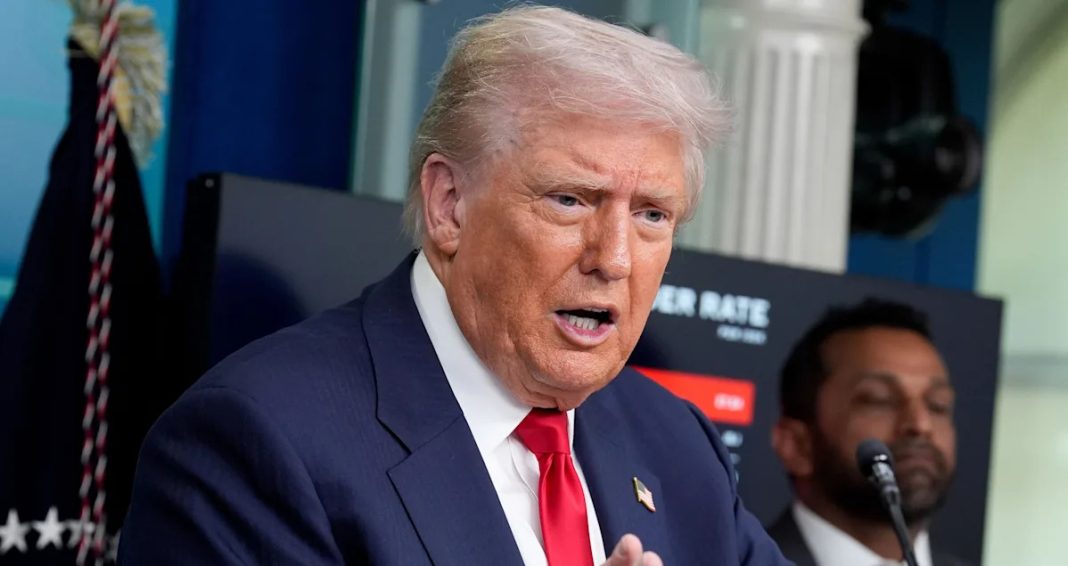When President Trump announced Monday that he was bringing the Washington, D.C., police department under federal control in order to crack down on what he described as “crime, bloodshed, bedlam and squalor” in the nation’s capital, he cited Section 740 of something called the Home Rule Act as the legal mechanism behind the move.
“Effective immediately, the Mayor of the District of Columbia (Mayor) shall provide the services of the Metropolitan Police force for Federal purposes for the maximum period permitted under section 740 of the Home Rule Act,” read Trump’s executive order.
So what is the Home Rule Act? And does section 740 really give him the authority to take over the D.C. police?
What is the Home Rule Act?
As you probably learned in elementary school, Washington, D.C., isn’t a state. It isn’t part of any other state either. It doesn’t have a constitution of its own. Instead, Washington is what’s known as a “federal district,” and it has been mostly under the jurisdiction of the U.S. Congress since its founding in 1791.
For a long time, that meant residents of the capital didn’t have the power to choose their own representatives. First, the president of the United States appointed three commissioners who ran Washington. Then in 1967 Lyndon B. Johnson did away with the old system and put a mayor and council in charge — but they were presidential appointees too.
The Home Rule Act, which Congress passed in 1973, is the law that finally allowed Washington residents to elect their own mayor and council members. It doesn’t give the district complete autonomy though. Even now, the president still appoints D.C.’s judges, and Congress still controls its budget. Congress also has the power to review and block local legislation.
What is Section 740?
Section 740 of the Home Rule Act — titled “Emergency Control of the Police” — is like a federal override switch for local control of the Metropolitan Police Department (MPD). It plainly states that the president of the United States may “direct the Mayor [of Washington, D.C.] to provide him, and the Mayor shall provide, such services of the Metropolitan Police force as the President may deem necessary” as long as the president “determines that special conditions of an emergency nature exist which require the use of the Metropolitan Police force for Federal purposes.”
In announcing his police takeover Monday, Trump insisted that special conditions of an emergency nature do in fact exist in Washington “Our capital city has been overtaken by violent gangs and bloodthirsty criminals, roving mobs of wild youth, drugged-out maniacs and homeless people,” the president claimed. “And we’re not going to let it happen anymore.”
As evidence, Trump has cited the Aug. 3 beating of Edward Coristine, a 19-year-old software engineer at the Department of Government Efficiency, during an attempted carjacking.
In his executive order, Trump delegated his authority to run the MPD to Attorney General Pam Bondi and directed Washington Mayor Muriel Bowser to “provide such services of the Metropolitan Police force as the Attorney General may deem necessary and appropriate.”
“Crime in D.C. is ending, and it’s ending today,” Bondi declared Monday.
Does Trump have to prove there’s an emergency in D.C. before taking over the police?
No. The statute does not require evidence or congressional approval — only a presidential declaration of emergency.
In reality, violent crime has been declining in the district since 2023, according to the Washington Post; it’s currently at its lowest point in six years. Juvenile crime has been falling too. So far this year, D.C. police have made about 900 juvenile arrests, the Post reports — almost 20% fewer than during the same time frame last year.
On Sunday, Bowser, a Democrat, cited similar statistics to claim that Trump is more focused on politics than policy.
“If the priority is to show force in an American city, we know he can do that here,” Bowser told MSNBC. “But it won’t be because there’s a spike in crime.”
Can Trump control the Washington, D.C., police forever?
Not really. Per Section 740 of the Home Rule Act, Trump now gets to control the MPD for an initial 48-hour emergency window, with the option to extend for up to 30 days. Anything longer than that requires “the Senate and the House of Representatives [to] approve a concurrent resolution authorizing such an extension.”
Of course, Republicans control both the Senate and the House of Representatives, so they might authorize an extension. Or lawmakers could do away with the Home Rule Act altogether.
Trump has already said that he’s interested in getting Congress to overturn the law.
“We’re gonna look at that,” he told reporters last week. “In fact, the lawyers are already studying it. We have to run D.C.”
In the meantime, Trump has other ways to exercise power over the capital. He announced Monday that he would also be deploying 800 National Guard members to Washington — which he can do without the consent of the local government (unlike in U.S. states, where the governor holds that authority).
“We will bring in the military if needed,” Trump added.
He can also reinstate something called the Control Board, a five-member federal authority that effectively ran the city from 1995 to 2001, during a time of financial hardship. Going forward, Trump could appoint five members of his own and significantly reduce the remaining authority held by Bowser and the D.C. council.

